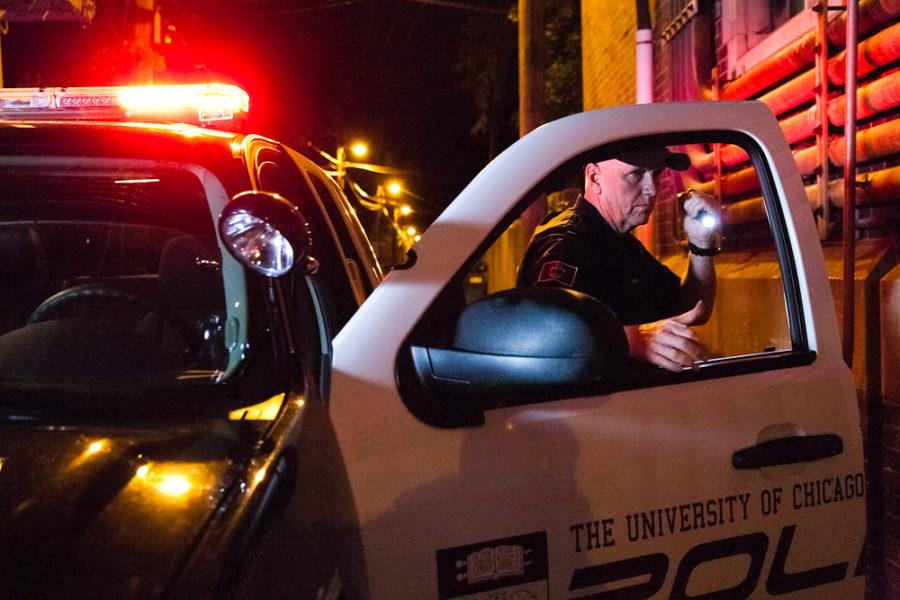For most students the summer is a reprieve from classes, but for the University of Chicago Police Department (UCPD), it’s business as usual.
The summer represents the most violent season of the year in Chicago, according to Gloria Graham, assistant chief of police for the UCPD.
Though the number of students enrolled in the University decreases during the summer, per the Registrar’s quarterly statistical reports, a large number of students remain in Hyde Park, especially graduate and non-degree students.
“A significant number of our students, especially those in graduate programs, are here all year round so they’re not really taking breaks like a traditional student,” Graham said. “A significant number of our undergraduate students live in the community even during the summer months and do internships, work in the Chicago area, and those sorts of things. So there’s still a pretty heavy population of students who are here.” She also said that July has the most criminal activity of the year in Hyde Park.
During the summer, the UCPD also continues to monitor the University of Chicago Medical Center, which has a consistent population throughout the year, according to Graham. The University also hosts around 46 conferences over the summer with about 2,500 attendees, some of which are students, Summer Conference Manager Ashley Clement said.
Despite changes in the demographics of the University during the summer, the UCPD’s overall strategies do not dramatically change.
“We continually adjust our strategies and deployment based on historical crime analysis and real-time incident data,” said Graham. She added that the UCPD’s strategies often change on the fly year-round, utilizing data from crime mapping.
The UCPD does adjust some of its strategies due to specific summer trends such as increased pedestrian traffic.
“We put officers out on bicycles and deploy our T3s [three-wheeled, stand-up electric vehicles similar to Segways] a lot more heavily, especially up on the 53rd Street corridor, also on the Woodlawn and Ellis corridors,” Graham said. “We’re pretty much driven by historical crime patterns and also by what’s occurring with our populations.”
Though crime increases in Hyde Park during the summer, theft notably drops.
“In a couple of our more public spaces on campus we see a lot of property crime—theft of unattended property and things. That goes down [during the summer] because obviously the students aren’t there so those areas aren’t densely populated,” Graham said. However, property crimes such as burglaries historically rise in Hyde Park during the summer months, usually due to residents leaving doors and windows open, according to Graham.
Graham also said that crime increases near the lakefront during the summer. Over Memorial Day weekend, the UCPD broke up a large bonfire of high school students at Promontory Point. Two men were shot during that weekend in areas near the lakefront as well.
“During the colder months, it’s typically very desolate. However, during the warmer months, [criminal] activity increases,” Graham said. “Activity certainly picks up at the beach, the lakefront, and the point, obviously because it’s more heavily populated during those times,” she added.
According to Graham, the UCPD works in tandem with the Chicago Police Department to develop strategies that account for this influx of people during the warmer weather, especially during holidays.
“The summer is not a slow time for us,” Graham said.








